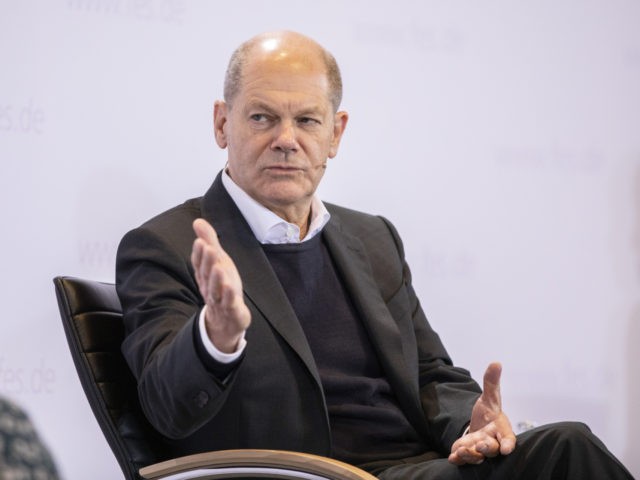The man likely to succeed Angela Merkel as the next Chancellor of Germany, Social Democrat (SPD) leader Olaf Sholz, has said that he is open to the idea of mandatory vaccinations as the number of Chinese coronavirus cases continue to rise in Germany.
Lefty Scholz stated on Monday at an economic summit that making vaccines mandatory should be on the table, saying: “I think it’s right that we have started a discussion about whether this should be done.”
The SDP leader’s statement comes in contrast to the position of the current centre-right German government under Chancellor Angela Merkel, who ruled out the idea of mandatory vaccinations in July. Yet, the draconian measure has been gaining traction with experts and other political leaders in the country as the number of cases has surged this month, German tabloid Bild reports.
Katrin Göring-Eckhardt, the parliamentary leader for the Green Party — who are currently in negotiations to form a new government with Scholz’s SPD — initially claimed the proposed coalition members had agreed to mandatory vaccination for certain professions.
However, Göring-Eckhardt later clarified that an agreement on the topic had not yet been formalised and that it was still a matter of debate.
Current Health Minister Jens Spahn reiterated the approach of Chancellor Merkel last week, warning that mandatory vacations would “tear our country apart” and expressed doubts about how well they could be enforced.
Bavarian Prime Minister Marcus Söder, the leader of the Christian Social Union, has come out in favour of mandatory vaccinations for nurses and healthcare workers but not for public servants, police, or educators.
A vaccine mandate of German military personnel has also been proposed and current Defense Minister Annegret Kramp-Karrenbauer has called for troops to be vaccinated. However, due to resistance within the ranks of the Bundeswehr (the German military), the policy has yet to materialise except for troops stationed overseas.
Legal experts, such as constitutional lawyer Christian Pestalozza, have argued that a vaccine mandate is inevitable, claiming that smaller measures have not done enough to stop the spread of the Wuhan virus.
Mandatory vaccinations have been the subject of debate in several countries in recent months, including the United States where the administration of President Joe Biden had ordered all businesses with more than 100 employees to require their workers to be vaccinated.
Last week, a U.S. Court of Appeals for the Fifth Circuit reaffirmed a ruling to halt the mandatory vaccination policy and at least ten U.S states have sued the Biden administration to block mandatory vaccinations for healthcare workers.
In some countries, however, there is more support for mandatory vaccines, such as Spain where a poll released last month showed that nearly half of Spaniards would support the forced vaccinations.

COMMENTS
Please let us know if you're having issues with commenting.